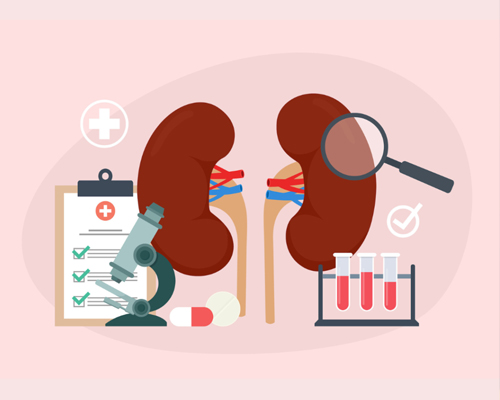
Blog
5 Essential Lifestyle Adjustments for Those Diagnosed With Chronic Kidney Disease
Receiving a diagnosis of Chronic Kidney Disease (CKD) can be a challenging experience, but it also marks the beginning of a journey towards understanding and managing your health better. With a clear diagnosis, you gain insights into the causes of your symptoms, paving the way for appropriate treatments to ease discomfort. However, adapting to this chronic condition requires some adjustments in your daily life. Discover the pivotal lifestyle changes healthcare professionals recommend for individuals diagnosed with chronic kidney disease.
Embrace a Low-Sodium Diet for Kidney Health
Limit Salt in Your Diet
The initial and crucial step for those facing a chronic kidney disease diagnosis is a dietary modification. Opting for a healthier, more balanced diet is beneficial for overall well-being. Specifically, individuals with CKD should focus on reducing sodium intake. In compromised kidney health, the accumulation of extra sodium and fluids in the body can lead to adverse effects such as edema, swollen ankles, puffiness, increased blood pressure, shortness of breath, and fluid retention around the heart and lungs.
Optimize Protein Consumption
Eat Less Protein
Monitoring protein intake is another dietary consideration. As the body processes protein, the kidneys play a vital role in filtering out waste. Consuming an excess of protein can strain the kidneys, a situation best avoided in chronic kidney disease. Therefore, regulating protein consumption becomes imperative for managing this condition effectively.
Manage Minerals for Kidney Well-being
Monitor Your Mineral Intake
In addition to sodium and protein, individuals with chronic kidney disease need to be mindful of their mineral intake, especially phosphorus and potassium. Malfunctioning kidneys may result in the buildup of excess phosphorus, compromising bone health by reducing calcium levels. Similarly, elevated potassium levels due to impaired kidney function can contribute to irregular heartbeats (arrhythmia) or even trigger a heart attack.
Incorporate Exercise and Attain a Healthy Weight
Exercise & Achieve a Healthy Weight
To combat high blood pressure, a leading contributor to kidney failure progression, lifestyle modifications are crucial. Your physician might advise shedding a few pounds to attain a healthier weight, achievable through regular exercise. Even if you're within a healthy weight range, incorporating light exercises like walking, yoga, biking, jogging, or other doctor-approved activities can contribute to blood pressure control. Aim for at least 30 minutes of daily exercise.
Break Free From Smoking
Quit Smoking
For individuals using tobacco products, quitting is paramount for kidney health. Smoking restricts blood flow to vital organs, including the kidneys, exacerbating kidney disease. Despite the challenges, quitting smoking is a vital step in safeguarding your kidney health and preventing further deterioration.
Explore Support with Pragma Medical Institute
Seek Additional Help From Pragma Medical Institute
Feeling overwhelmed post-CKD diagnosis is normal, but you don't have to navigate it alone. Pragma Medical Institute offers comprehensive support and treatment for chronic kidney disease, right in the comfort of your home. As a provider of in-home medical services, our experienced team ensures you receive top-quality care without the need to visit an emergency room. Count on us to provide the necessary support to enhance your comfort while living with chronic kidney disease.